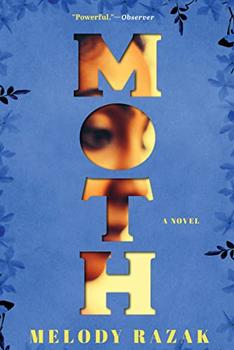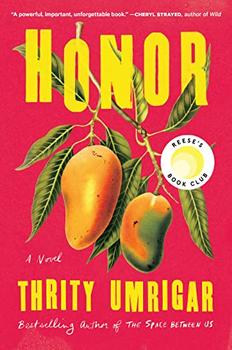Summary | Excerpt | Reviews | Beyond the book | Read-Alikes | Genres & Themes | Author Bio

A Novel
by Melody RazakOn August 15, 1947, India gained independence from the United Kingdom, and on that same day the country was divided into two separate nations: the mostly Hindu India, and the mostly Muslim Pakistan. The split wasn't pretty; it led to what's widely believed to be one of the largest forced migrations in human history, as Muslims living in India were compelled to leave their homes for Pakistan and Hindus in Pakistan likewise required to relocate. About 15 million people were displaced — sometimes violently — and as many as one million people died of hunger or disease or were murdered during the diaspora. Brutality against women was particularly prevalent, including the systematic kidnapping and rape of somewhere around 100,000 women. It's against this turbulent period in India's history that Melody Razak sets her brilliant debut, Moth.
The book opens in early 1947, where we meet Brahma and Tanisi, a high-caste Hindu couple who live in Delhi with their two daughters, Brahma's widowed mother and their servants. The pair — liberal professors at Delhi University — have agreed against their better judgement to the marriage of their elder daughter, 14-year-old Alma (a match engineered by Brahma's conservative mother Daadee Ma). As they prepare for the wedding and eagerly anticipate India's independence, they gradually become aware of unrest in other parts of the country. The family initially views the instability as something that's happening far away, violence that's temporary and isolated, and something that could never happen in Delhi. As Independence Day approaches, however, it becomes clear they aren't immune, and they eventually become engulfed in the turmoil.
The novel first concentrates on Alma as she contemplates her impending wedding to her 22-year-old fiancé, whom she has met just once. As she plays with her friends and her younger sister Roop, attends classes at the local Catholic school, and learns how to perform household duties to please her future mother-in-law, it quickly becomes clear how unprepared for marriage the girl truly is. Readers also come to know each member in the household in this section, learning, for example, that Brahma is thoughtful but insipid, that one of the servants is a Muslim widow, and that the querulous Daadee Ma loathes the servant because of her faith. Razak's writing is stellar as she develops each of her characters, and the depth with which she imbues them creates a memorable cast.
As partition approaches and the drama ramps up, the narrative transforms from character-driven to action-driven. It's these chapters that make Moth a standout; Razak's prose elicits a visceral reaction in her audience as each character is consumed by events they can't control, and the overall atmosphere of tension is palpable. It's one of the most unforgettable novels on the subject that I've encountered, and I found reading it an intense experience.
My only complaint with Moth is its setup; there are several scenes illustrating Alma's naivete that serve very little purpose and simply slow the narrative pace. In addition, the author chooses to use a question-and-answer format in the opening chapters to educate users on India's political background. While providing this context is likely necessary for some readers, it nevertheless felt clumsily executed.
Given the subject matter, it's not surprising that Moth is filled with episodes of violence. There are graphic descriptions of rapes, beatings and murders, and more sensitive readers may therefore wish to bypass the novel. Those, however, who are looking for a deeper understanding of this terrible era in India's history — one that continues to resonate today — will want to add this book to their lists. Razak's portrayal of the tension and trauma of partition is admirable, and her superb characterization lands the book on my must-read list of 2022. I highly recommend it to most audiences, and book groups will likely find it provides excellent fodder for discussion.
![]() This review was originally published in The BookBrowse Review in September 2022, and has been updated for the
August 2023 edition.
Click here to go to this issue.
This review was originally published in The BookBrowse Review in September 2022, and has been updated for the
August 2023 edition.
Click here to go to this issue.

If you liked Moth, try these:

by Thrity Umrigar
Published 2022
A Reese's Book Club Pick! In this riveting and immersive novel, bestselling author Thrity Umrigar tells the story of two couples and the sometimes dangerous and heartbreaking challenges of love across a cultural divide.

The Ministry of Utmost Happiness
by Arundhati Roy
Published 2018
A dazzling, richly moving new novel by the internationally celebrated author of The God of Small Things.
Your guide toexceptional books
BookBrowse seeks out and recommends the best in contemporary fiction and nonfiction—books that not only engage and entertain but also deepen our understanding of ourselves and the world around us.